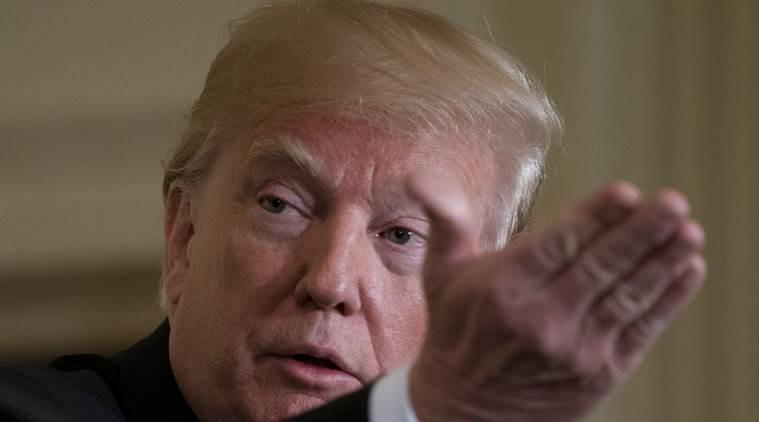
U.S. President Donald Trump said on April 11 that “missiles will be coming” in response to an alleged chemical attack in Syria, hours before Russian President Vladimir Putin warned against “chaos.”
In a confrontation with Moscow, Trump took to Twitter in the strongest assertion yet that he plans to take military action in Syria.
“Russia vows to shoot down any and all missiles fired at Syria. Get ready Russia, because they will be coming, nice and new and ‘smart!’” Trump wrote.
“You shouldn’t be partners with a Gas Killing Animal who kills his people and enjoys it!” the U.S. president said.
Damascus, which has long accused Washington of supporting “terrorists” opposed to the regime, hit back at Trump’s threats.
“We are not surprised by such a reckless escalation from a regime like the United States which has fostered and continues to foster terrorism in Syria,” state news agency SANA quoted an official source at the foreign ministry as saying.
Trump and other Western leaders have vowed a quick and forceful response to the April 7 alleged gas attack, which rescue workers say killed more than 40 people in the rebel-held Damascus suburb of Douma.
Efforts to find a diplomatic solution at the U.N. Security Council on April 10 failed, with Washington and Moscow opposing each other’s rival motions to set up an international investigation into chemical weapons use.
Trump in another tweet said U.S.-Russian relations are “worse now” than ever, “and that includes the Cold War.”
“There is no reason for this. Russia needs us to help with their economy, something that would be very easy to do, and we need all nations to work together. Stop the arms race?” he said.
Russia has meanwhile taken to stronger and stronger warnings.
Russian President Putin said although geopolitical tensions around an “all the more chaotic world” are causing anxiety, he hopes that “common sense will prevail.”
Speaking to new ambassadors on April 11, Putin said: “The state of world affairs cannot but cause anxiety. The situation in the world is becoming all the more chaotic.”
The Russian leader continued: “Nonetheless, we hope that common sense will prevail and international relations will go on a constructive course, that all the world’s systems will become more stable and predictable.”
“We would hope that all sides will avoid steps that in reality are not provoked by anything and that could destabilize the already fragile situation in the region,” Kremlin spokesman Dmitry Peskov said.
“The situation is tense,” Peskov said, adding that Russia is calling for an “unprejudiced and objective investigation before making judgments” on the suspected use of chemical weapons.
Russian foreign ministry spokeswoman Maria Zakharova also insisted that “smart rockets should be aimed at terrorists, rather than the legitimate government” of Syria.
The U.S., Britain and France have argued the incident bears all the hallmarks of a strike ordered by the regime, which has been blamed for previous attacks by the Organization for the Prohibition of Chemical Weapons (OPCW).
Both Trump and his defense secretary Jim Mattis abruptly cancelled upcoming travel plans, as the U.S.S. Donald Cook - a guided-missile destroyer - moved to within striking range of Syria.
The air traffic control agency Eurocontrol has also released an alert from the European Aviation Safety Agency to flight operators in nearby airspace of “the possible launch of air strikes into Syria with air-to-ground and/or cruise missiles within the next 72 hours.”
In 2017, Trump launched a cruise missile strike against a Syrian air base in retaliation for a sarin attack the U.N. later pinned on Assad.